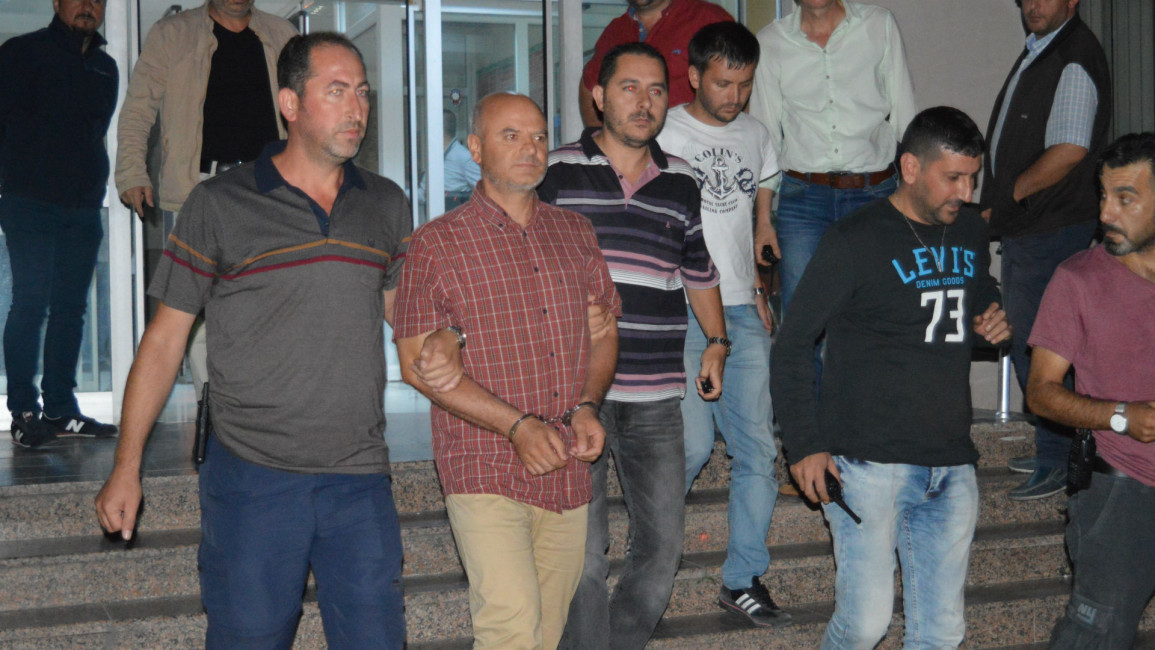
Who will fill the void after Turkey's post-coup purge?
The lawyer insists on talking via Whatsapp because he is too scared to talk via phone, and asks not to be named. His attitude is typical in the turbulent political landscape that is post-coup Turkey. "For journalists, Istanbul has become a city of anonymous sources," writes German freelance journalist Zia Weise in Politico.
"I know I didn't say anything wrong," says a Turkish academic on the phone, after commenting on the history of Islamist movements in Turkey. "But please refrain from using my name. Under this government you never know what can and cannot be used against you."
AKP cadre filling the slots
In the days since the 15 July coup attempt was averted by both uniformed and civilian government loyalists, Turkey's state apparatus has undergone a major purge. After more than two weeks, around 60,000 people have been either forced to resign, sacked, detained or arrested. From policemen and military personnel to judges, teachers and civil servants.
The fear of being targeted as a Gulenist, a sympathiser of the coup plotters still looms large over many a head. But now that the dust slowly starts to settle and the new reality of a post-coup Turkey is sinking in, people cautiously risk a look ahead. And what they see isn't promising.
In the educational sector alone, tens of thousands of people have lost their jobs, and it's still a question of who is going to replace them once school starts again in a few week's time.
All university deans have been forced to resign, 15,200 teachers at state schools have been suspended, 21,000 private school teachers have seen their teaching licences revoked and 6,500 employees of Turkey's education ministry have been suspended.
How is the government going to find enough qualified people to take over these jobs at such short notice? Ertan Aydoganoglu, an education expert working with a left-wing trade union for teachers and educational workers doesn't know the answer, but suspects that the slots will be filled by "partisans, or people who support the AKP".
The education expert's suspicions are echoed by the lawyer: "A third of all judges has been discarded," he writes on Whatsapp. "Now they will need new judges, but how? The new judges will be amateurs, most likely AKP cadre."
Sovereignty for whom?
Post-coup Turkey has seen its public space turn red - bright red - with every car, building, bridge and bus sporting the national flag.
In a matter of days, billboards, bus stops and advertising pillars across the country featured the same poster showing a billowing red Turkish flag with the white crescent and star, overlaid with the words "Hakimiyet Milletindir", loosely translated as "sovereignty belongs to the people".
It is a fitting slogan for the defeat of the attempted coup. Not only did the majority of the people in Turkey oppose the coup, many of them even physically confronted the putschists on the streets, fighting off soldiers and throwing themselves before the wheels of rebel tanks.
But who are these "people" to whom the billboards so blazingly refer to? Are these the Kurdish people that have been forced to flee their homes in their hundreds of thousands, when Turkish military reduced their towns to rubble? Are these the millions of Alevis that have been structurally discriminated against for almost a century, and who are still fighting for official recognition of their religion? Are these the journalists that have been locked up, the academics that called for peace, the workers who died on the jobs, or the women who were murdered to save their families' honour?
The answer is a sad, but sound "no".
Sovereignty, in Turkey, only belongs to a select few. To the ones who have thrown in their lot with the AKP. And even for them sovereignty comes with certain strings attached - first and foremost of which is unquestionable loyalty to the party and its leader President Recep Tayyip Erdogan. Even the smallest digression from the party line can be cause for demotion, as former Prime Minister Ahmet Davutoglu can attest to.
The rule of men
The attempted coup has provided the president and his clerks with an excuse to pursue a thorough purge of the entire state apparatus to clear out all those whose unconditional support cannot be guaranteed. Or - in the president's words - to "clean all state institutions of the virus" of Gulen supporters - referring to the US-based Muslim clerk that is accused by Turkey of masterminding the coup.
"From now on, judges will implement whatever he [Erdogan] says because they're scared," the lawyer predicts. "And this means the entire judicial system is now in their hands."
Much the same can be said for the education system, especially now that the government has announced the suspension of standardised state exams for new teachers. Instead, interviews will be conducted.
From the rule of law to the rule of men. It has become a familiar development to those who have been observing Turkish politics over the past years. The failed coup now seems to have sped this process up.
Joris Leverink is a political analyst and freelance writer based in Istanbul, Turkey. He is an editor for ROAR Magazine and a columnist for TeleSUR English. He has an academic background in cultural anthropology and political economy. Follow him on Twitter: @Le_FriqueOpinions expressed in this article remain those of the author and do not necessarily represent those of al-Araby al-Jadeed, its editorial board or staff.




